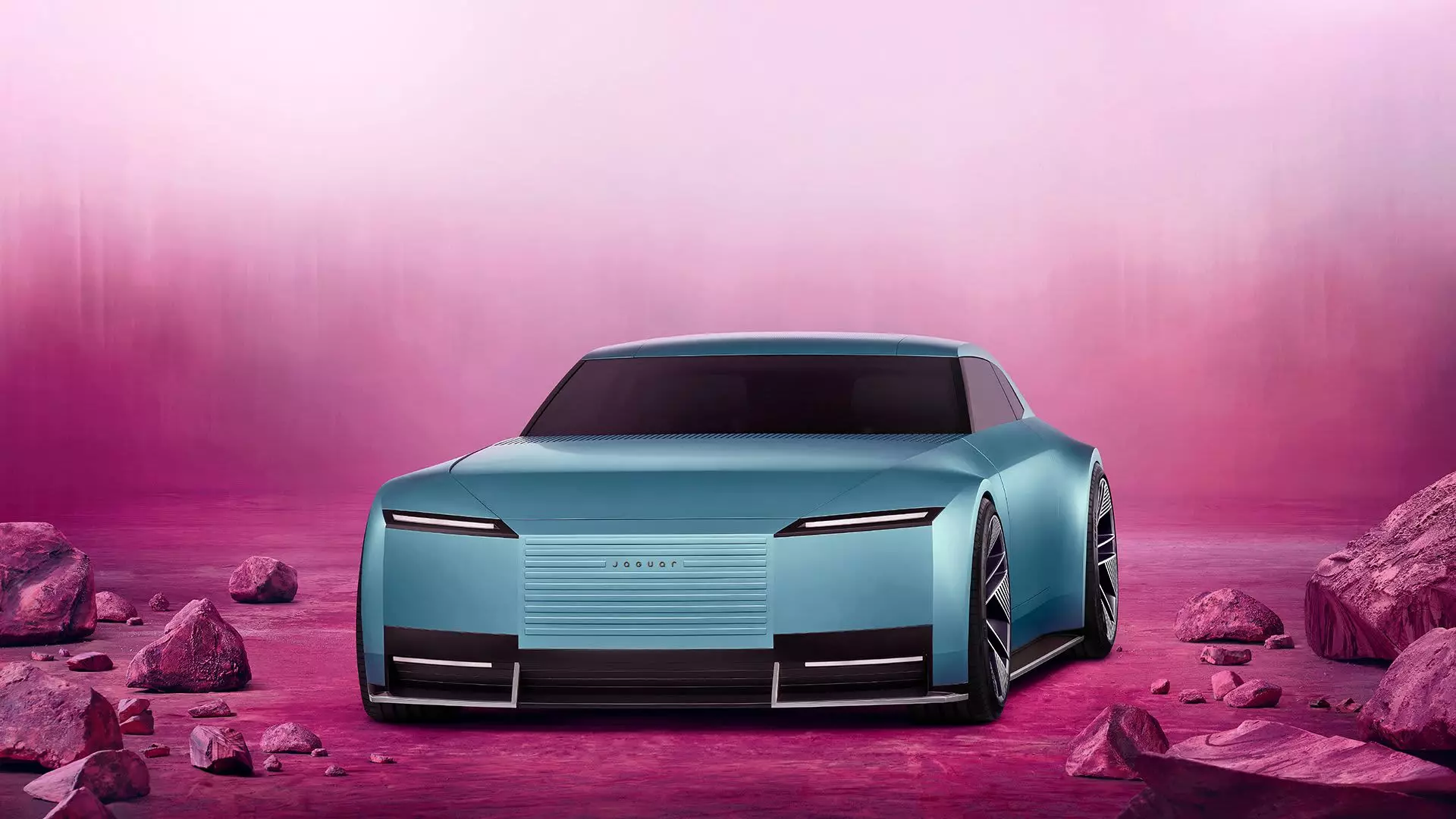Jaguar, the illustrious British automaker known for its luxury and performance, has recently unveiled its ambitious design direction with the introduction of the “Type 00,” an all-electric concept car. This announcement marks a pivotal moment for Jaguar, as the brand prepares to transition from traditional combustion-engine vehicles to a fully electric lineup. The Type 00, pronounced “Type Zero Zero,” showcases a strikingly avant-garde aesthetic that sets itself apart from the traditional sporty contours that customers have come to expect from Jaguar.
The design of the Type 00 is a thought-provoking synthesis of minimalism and boldness. It features an angular, almost box-like structure complemented by sleek headlights and oversized wheels. This departure from the brand’s classic design language raises questions about Jaguar’s identity in a rapidly changing automotive landscape. While some purists might view the design as gaudy, it aims to encapsulate a futuristic vision that exemplifies the brand’s commitment to innovation. This vehicle serves as more than just a concept; it is a statement of intent that signifies Jaguar’s readiness to chart a new course in automotive design.
Automakers often employ concept vehicles like the Type 00 to gauge public reaction and to highlight potential future models. Jaguar plans to introduce several electric vehicles, including a much-anticipated four-door GT model, projected for a reveal next year. This strategy reflects a broader shift within the auto industry where consumer interest in electric vehicles continues to grow. Jaguar’s vision includes impressive range capabilities, boasting projections of up to 430 miles on a single charge and rapid charging technology that could provide 200 miles of range in just 15 minutes. Such advancements are critical in an industry where range anxiety remains a significant concern for potential EV buyers.
The Type 00 was introduced shortly after Jaguar launched its “Copy Nothing” rebranding campaign, which received a mixture of praise and criticism. The accompanying video showcased a diverse array of androgynous models posed against vibrant backdrops, emphasizing a modern and inclusive narrative. However, the ad’s absence of any vehicles drew ire from traditionalists who see it as a departure from the brand’s core automotive focus. Critics also lambasted the decision to replace the iconic Jaguar logo, leading some to argue that the company is abandoning its rich heritage for a perceived “woke” agenda. In response, Jaguar defended its rebranding efforts, asserting that the changes are a necessary evolution in their branding strategy, striving to resonate with contemporary consumers.
Jaguar’s transformation comes at a time when the automotive industry is grappling with significant changes as more manufacturers announce agendas to switch to electric-only vehicle lineups. The company has even halted all new car sales in the U.K. as it readies itself to relaunch as an electric-exclusive brand by 2026. This bold move reflects the urgency felt across the industry, yet it highlights the challenges ahead. Several companies that initially committed to going fully electric have encountered difficulties amid slower-than-expected adoption rates from consumers.
In an interview, Jaguar managing director Rawdon Glover emphasized the need to challenge traditional automotive stereotypes and carve out a unique identity in this new era. For Jaguar, this means exploring different price points and engagement strategies that resonate with a broader audience. The Type 00 is more than a mere concept; it symbolizes Jaguar’s dedication to reinvention. As the company attempts to navigate the complexities of the electric vehicle market, its success will hinge on striking a balance between its storied heritage and the demands of a forward-looking consumer base.
Jaguar’s unveiling of the Type 00 is a bold statement of intent. It represents not just a new vehicle, but a new philosophy as the brand embraces an electric, modern future while grappling with the legacies of its past.

